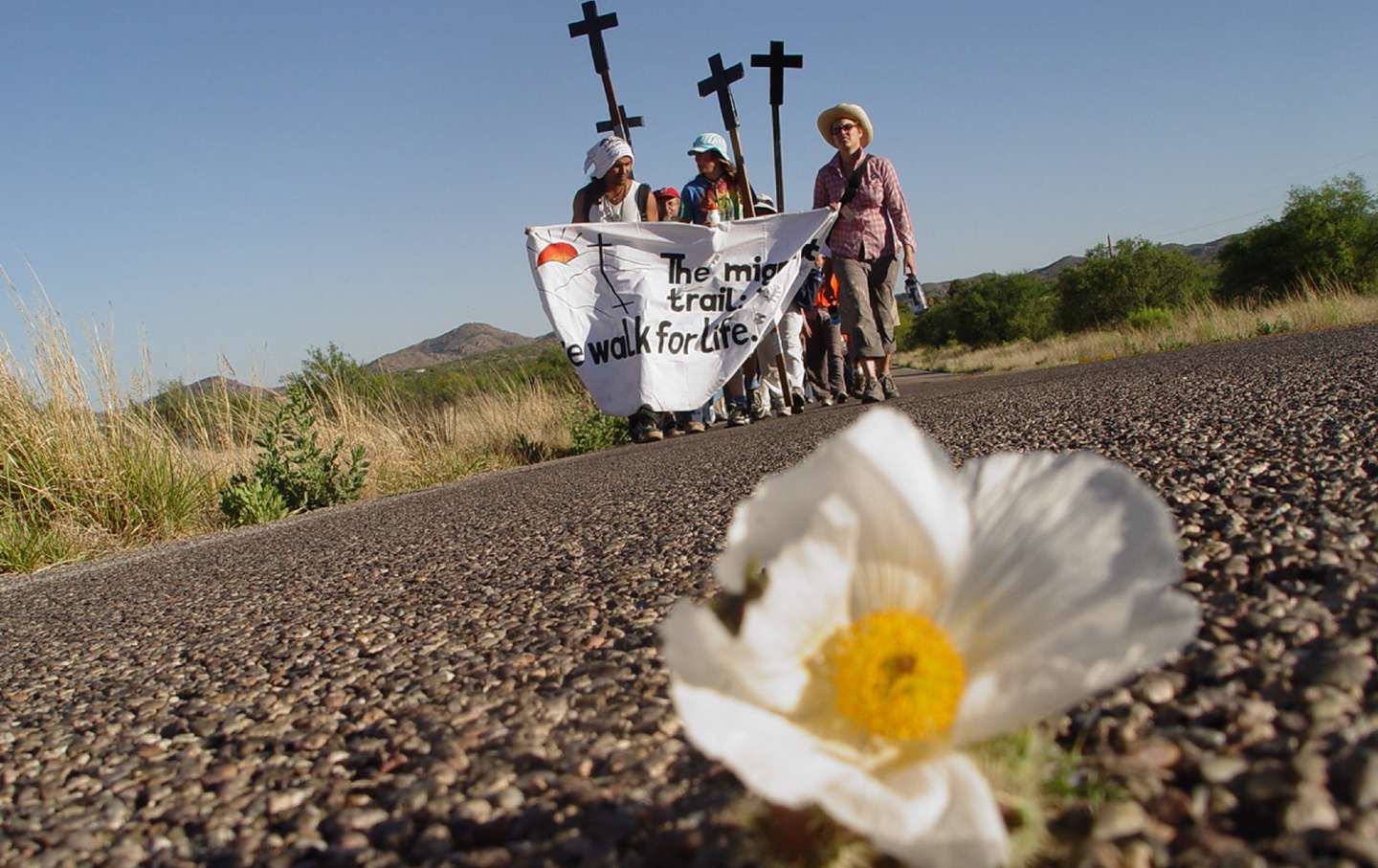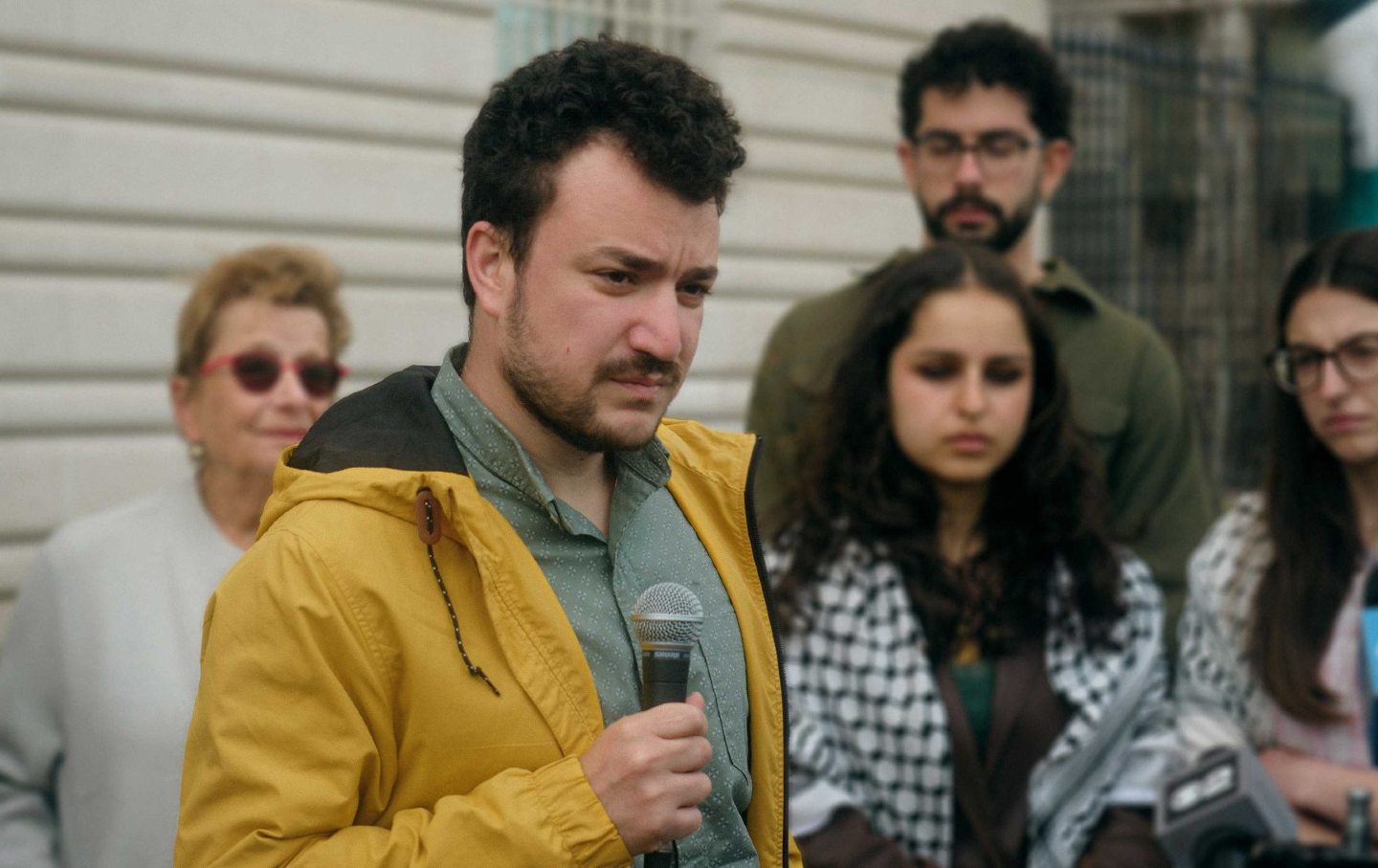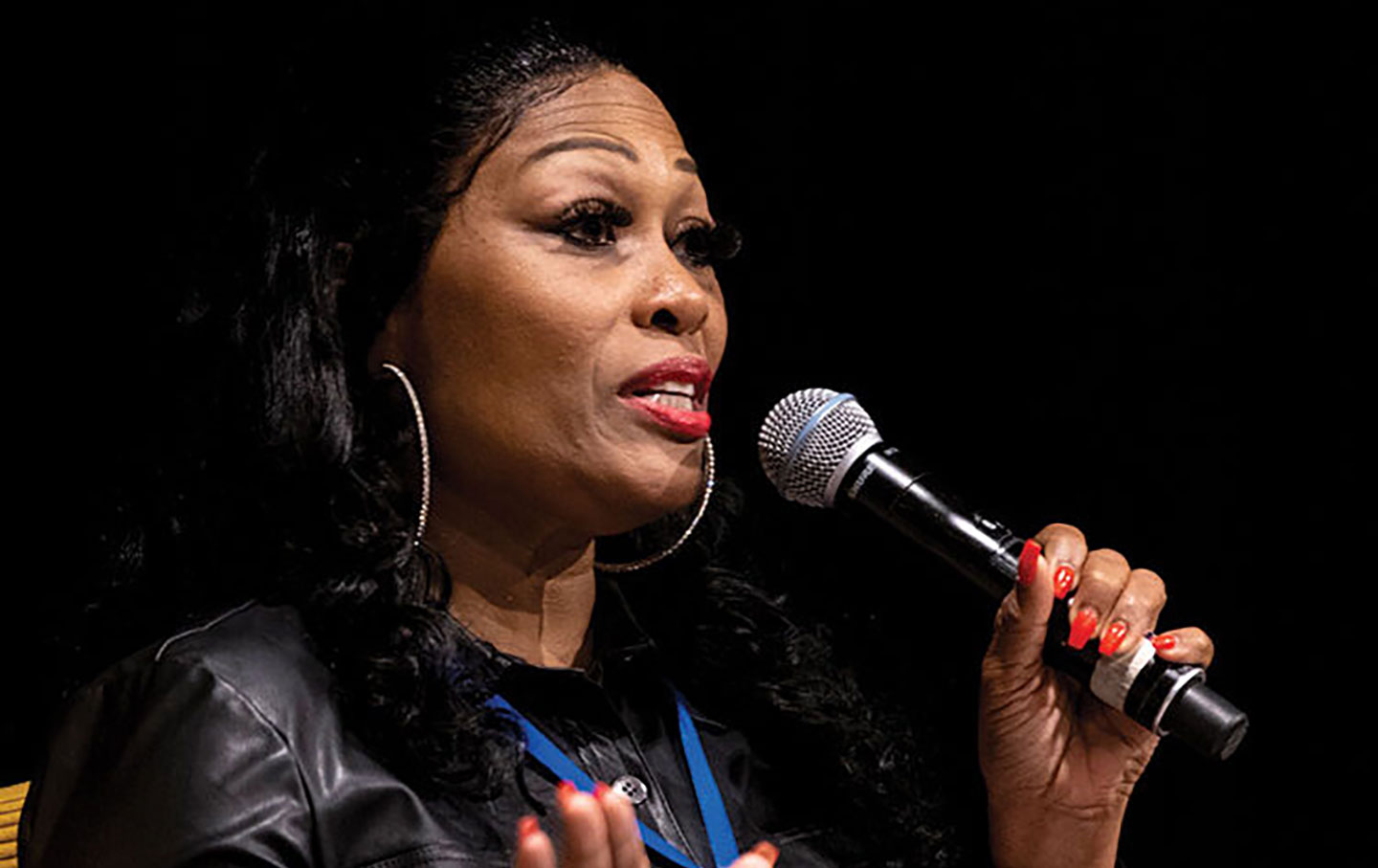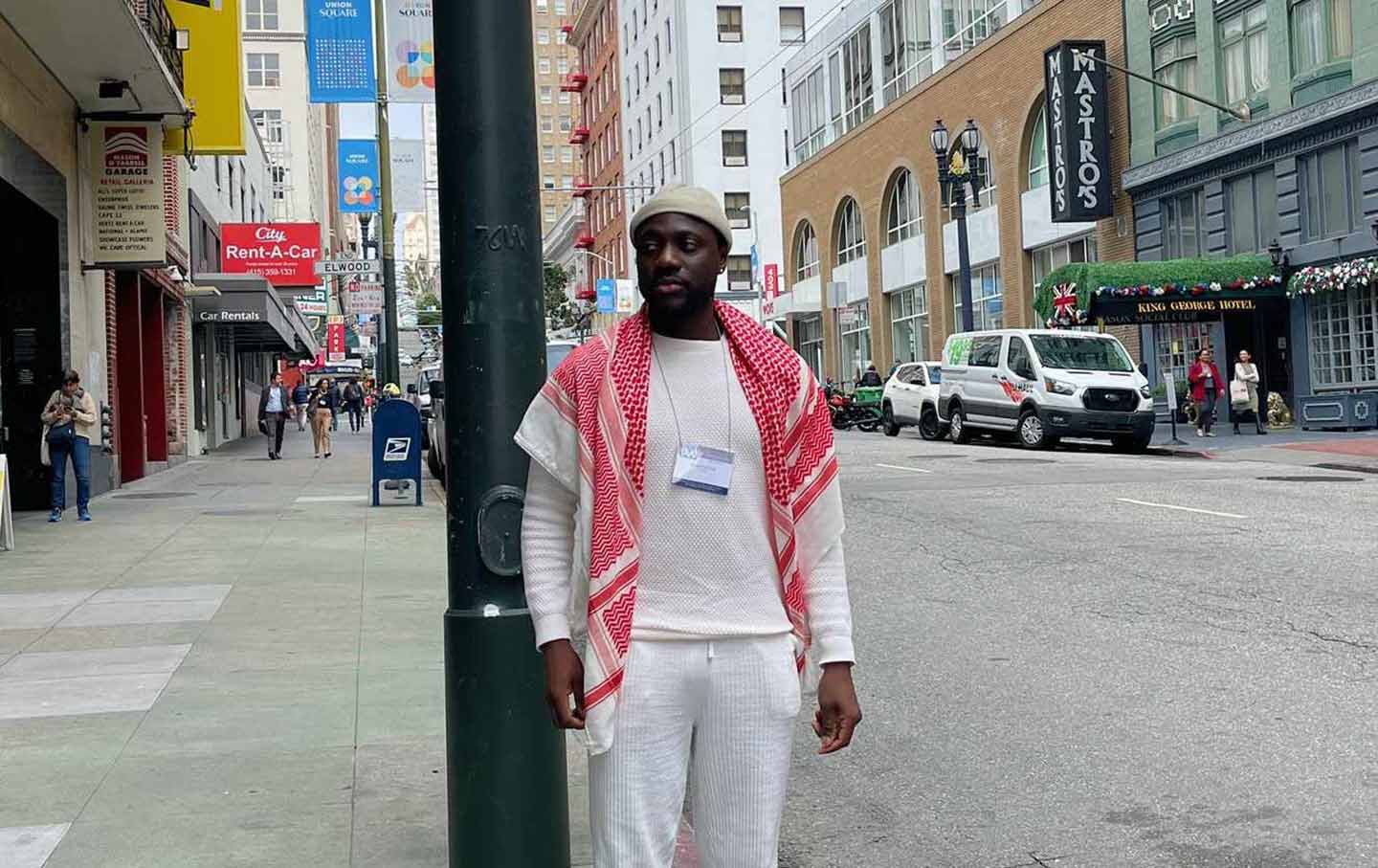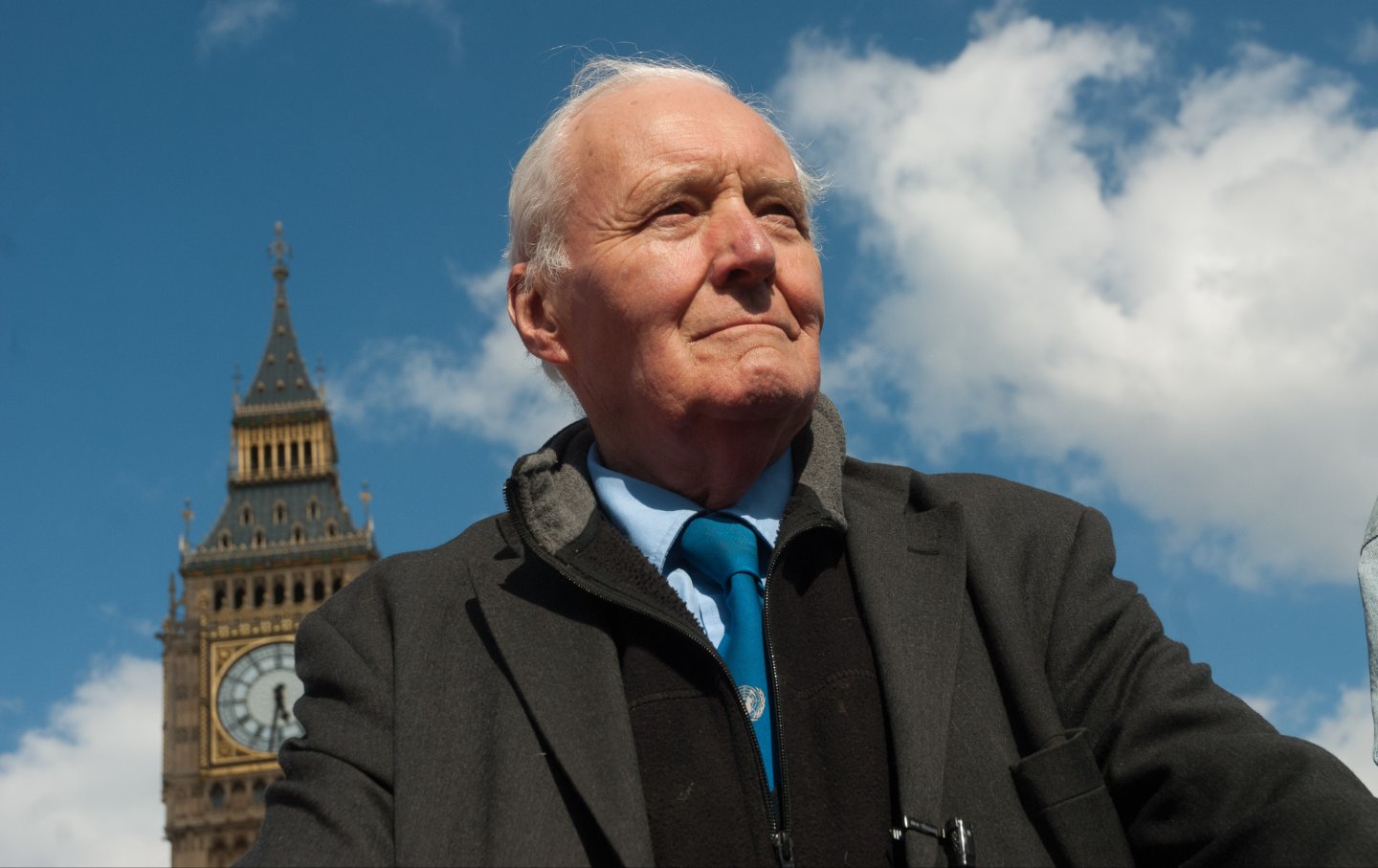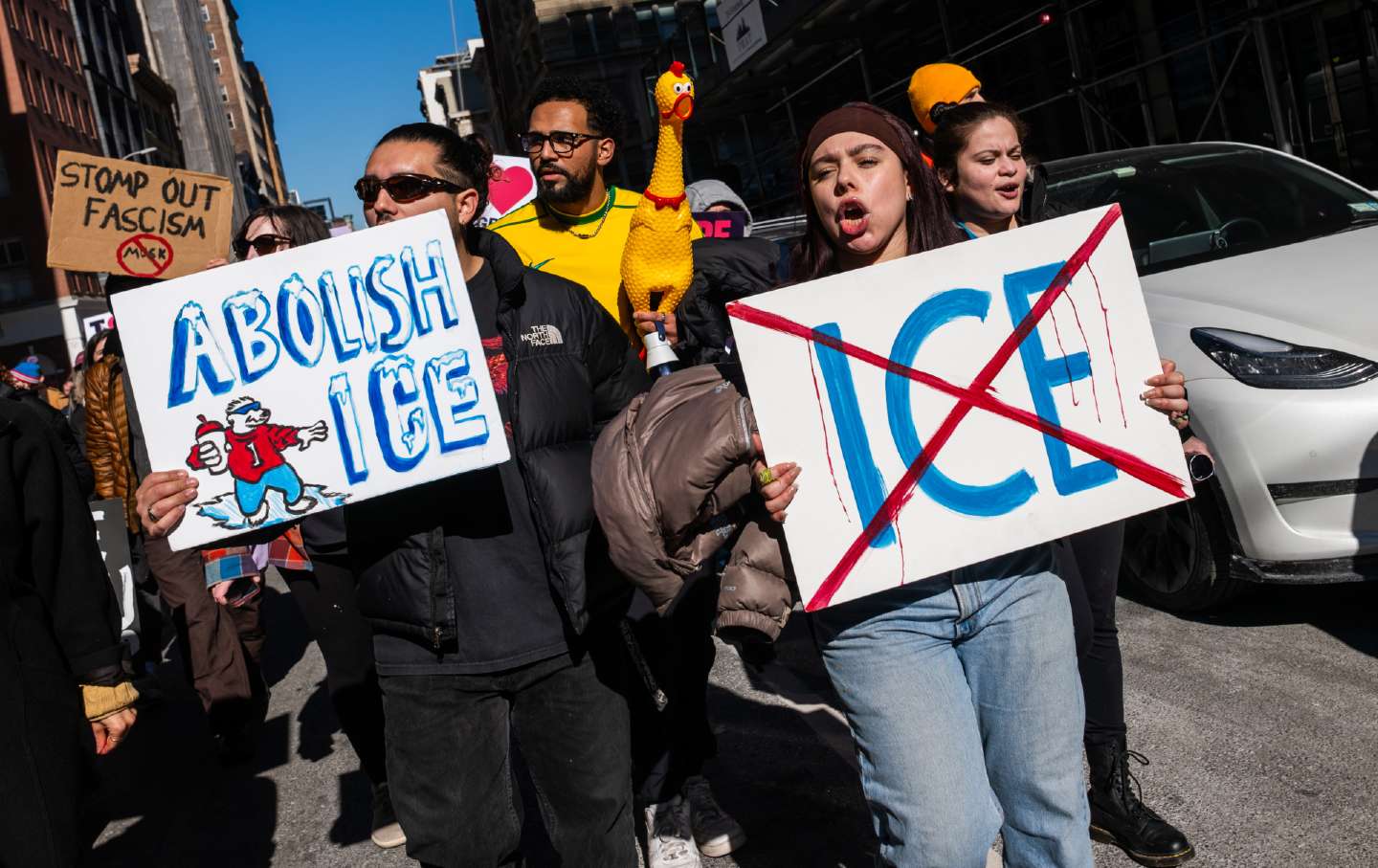MTA Bus Drivers Don’t Work for the Cops
The six bus drivers who walked off the job rather than transport protesters slowed the city’s mass-arrest machine by sticking to their union-negotiated contract.
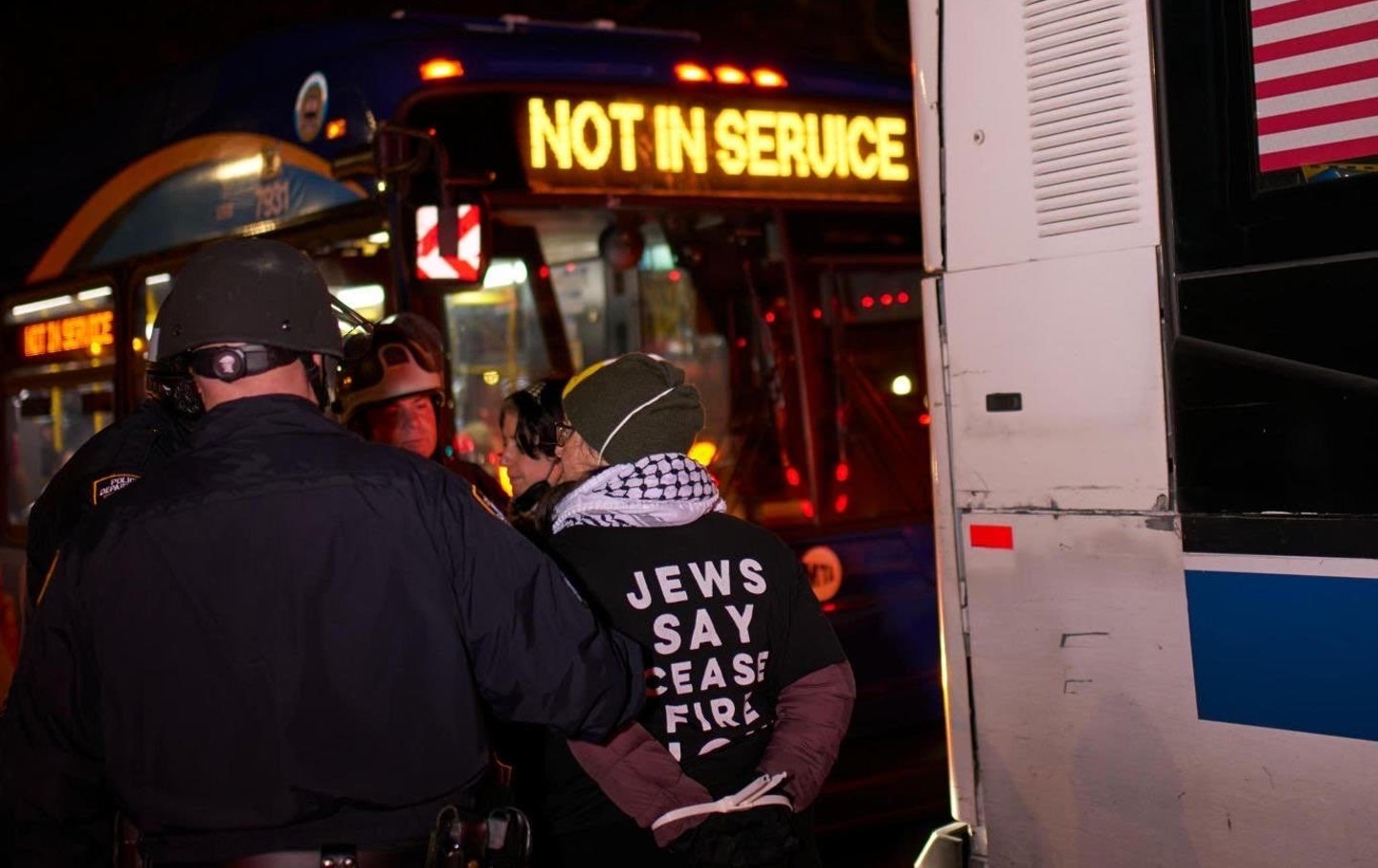
Over the past six months of protests against Israel’s ongoing bombardment of Gaza, the New York Police Department has used Metropolitan Transit Authority buses to barricade streets, accompany motorcades, and transport those who have been mass-arrested to jail.
But when an April 23 protest in Brooklyn’s Grand Army Plaza resulted in a mass arrest, six bus drivers told the cops they’d had enough: They would not serve as prisoner-transport drivers for the vehicles packed with zip-tie-cuffed activists. Instead, they walked off the job, leading officers to go from bus to bus searching for replacement drivers.
According to leaders of TWU-Local 100, the labor union representing the city’s transit workers, working for the police is simply not in a bus driver’s contract. “No operator should drive a bus once confiscated by the NYPD to transport people to prison,” said J.P. Patafio, MTA surface vice president for Brooklyn, in an April 25 statement.
According to a statement from MTA spokesperson Eugene Resnick, “NYC Transit bus operators are not expected or required to drive outside of their assigned routes.” He then directed further questions to the NYPD. An NYPD spokesperson said that “MTA bus drivers are not required to operate MTA buses to transport prisoners,” before directing further questions to the MTA.
According to six arrestees interviewed by The Nation, after the drivers walked off, the buses full of protesters sat immobile in Grand Army Plaza for hours, as police searched for someone with the necessary license. When the officers finally found drivers with the correct licenses, protesters said, those drivers hit curbs, failed to figure out how to park the vehicles, locked themselves out of the buses, and needed to ask where the brakes were—effectively learning on the job.
Veteran activist and rabbinical student Louisa Solomon, who has participated in many civil disobedience actions with groups like Jews for Racial and Economic Justice and Jewish Voice for Peace, told The Nation that when she was arrested at Grand Army Plaza, officers handcuffed her and walked her onto a Brooklyn MTA bus. And then she waited—for about two hours, she said. It didn’t take long to figure out why, exactly, she was waiting.
“The police did not have anyone to drive the buses,” Solomon said. Sophie Kreitzberg, a protester with Jewish Voice for Peace, told The Nation that the Grand Army Plaza protesters were told to wait for an unusually long time as NYPD officers figured out how to transport the protesters. “We’d been there maybe an hour,” Kreitzberg recalled, “and an officer comes onto the bus and yells, ‘Is anyone here bus-driver authorized?’”
Two other protesters said that police officers then moved from bus to bus, asking if anyone had a commercial drivers’ license. Meanwhile, the protesters waited in plastic handcuffs, which were fastened so tight that some of their hands turned blue from lack of circulation. “They were asking every freaking cop if they could drive the bus,” Solomon said. “We were joking that perhaps one of us could drive.”
Though officers eventually found commercially licensed drivers, according to Kreitzberg they “presumably [were] not trained to drive city buses.” (The NYPD has stated that they use only “qualified officers” for such tasks.) The officer “hit several curbs” on the 20-minute drive from Grand Army Plaza to 1 Police Plaza, Kreitzberg said. Another protester said an officer on their bus begged the driver to slow down by saying, “Take it easy! They’re in handcuffs!”
On Solomon’s bus, meanwhile, the police officer selected as a driver did not seem to know the way to 1 Police Plaza. At one point, she recalled, he stopped the bus to ask another officer how to enter the NYPD’s primary processing center. Things only went downhill when the buses reached police headquarters. “They did an almost comical, Austin Powers–like 25-point turn to try and get into the driveway,” Solomon said. Eventually giving up on the driveway, they parked the buses on the street, where according to Solomon they “waited for another hour or more” before successfully pulling into the processing center. Throughout all this, protesters remained in their plastic cuffs. According to three protesters, the officers on the buses did not have the shears necessary to take them off.
Samuelsen, the TWU international president, described the whole episode as “absurd.” “The cops themselves have dozens of employees who are trained to drive the buses. Dozens!” he said, noting that the NYPD owns its own fleet of prisoner-transport buses it can use, and that there are several NYPD employees who used to be bus drivers—they just couldn’t seem to find any of them. “That’s an epic management failure.”
All in all, the six bus operators who walked off the job that night stopped the gears of the NYPD’s mass-arrest machine from turning for at least a few hours. And their union leadership stood behind them—because this isn’t the first time bus operators have refused to participate in the policing of mass movements. In New York, bus drivers’ refusal to be co-opted can be traced to Occupy Wall Street. After at least one driver refused to cooperate with the NYPD, the union tried to get a temporary restraining order against the police in order to forbid them from using MTA buses. Though the restraining order was not granted, the case was not dismissed. The union marched in solidarity with Occupy Wall Street that same month and continued to do so for the years following.
For over a century, those who would try to make the city run without its trained workers have suffered the consequences. In 1918, a Brooklyn Rapid Transit drivers strike led to a similar scramble for operators. As a result, a nonunionized driver crashed a train not far from Grand Army Plaza, where protesters were arrested Tuesday. It was the worst transit accident in New York City history.
And the Transit Workers Union has a long history of anti-war leadership. Mike Quill, the Irish immigrant and IRA veteran who founded the union, was one of the earliest labor opponents of the Vietnam War. The MTA’s Patafio, who is responsible for the 3,500 bus drivers working in Brooklyn, sees Quill as a forebear worth emulating—especially as he is aware now that members of his own union have family in Gaza. “I always come back to ‘all workers,’ right? Working families in Palestine, working families in New York City,” he told The Nation. “They all have the same simple demands. I want to be able to raise my family, live in peace and have some security.”
Leadership at the Transport Workers Union is unanimous that MTA bus operators are not required by contract to comply with police commandeering of their vehicles. For some, like TWU International President John Samuelsen, it’s a straightforward contract violation. “It’s not within our job description to transport arrestees. That’s the work of—I don’t care who it’s the work of, it’s just not the work of transit workers. It’s not within the scope of our duties,” he said. “And it’s freakin’ dangerous!”
Popular
“swipe left below to view more authors”Swipe →Back in 2011, when Samuelsen was president of TWU Local 100, bus drivers refused to drive during Occupy Wall Street, both because of threats from protesters (Samuelsen recalled one “smarmy, entitled, rich, white” protester calling a Black bus driver an Uncle Tom) and because of threats from police, who at one point pepper-sprayed a bus operator. “Our people are not trained for this,” he said. “They are under enough mental and physical stress when they come to work every day.”
Once Samuelsen became international president of the TWU, the policy he’d put in place for New York—that TWU members do not transport arrestees—became the national union’s line. And, he said, transit workers across the country embraced that rule during 2020’s George Floyd protests. “Even our bus operators all across the South embraced it,” he said. “Even our bus operators who carry guns in Houston and Miami embraced it. Nobody wants any part of this. This isn’t what we do. We transport working people.”
Samuelsen said he doesn’t see the Transport Workers Union calling for a cease-fire anytime soon, though other unions, such as the United Auto Workers, did so as early as December. “We don’t take positions on these issues, even if it’s an issue of great consequence,” Samuelsen said. “It would have to be a massive unanimously held position of the membership, and it’s just not.”
Patafio disagrees on that point. “Our trade union came out of migrant workers’ being denied basic rights,” he said, noting that TWU took positions on the Vietnam War and the civil rights movement before other unions. “I think [our history is] something we should look to.”
Regardless of why the drivers walked off, the protesters waiting in their plastic cuffs on that late night took one message away from the incident: Solidarity forever. “[The drivers] were refusing to let NYPD claim ownership to their labor, and to a public service,” Solomon said. “City buses are for the people.”

